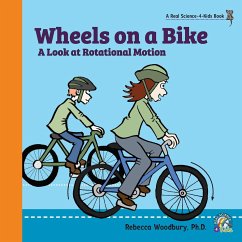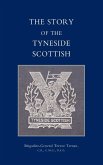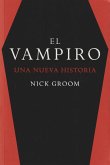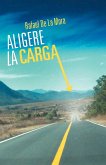In Wheels on a Bike: A Look at Rotational Motion, fundamental scientific concepts in physics are explained through simply written text and colorful, fun illustrations. Young readers learn that any object that is moving in a straight line has linear motion. A bicycle moving in a straight line has linear motion, but because bicycle wheels are round and move in a circle, the wheels also use nonlinear, or rotational, motion. The word rotate means to turn around a center point. Rotational motion is a type of movement where an object turns around a center point. Rotational motion can be demonstrated by placing a dot on the side of a bike wheel, turning the wheel, and watching how the dot moves. Other examples of objects using rotational motion are illustrated: a spinning top, a rolling ball, windmill blades, and airplane propellers. A pronunciation guide of scientific terms is included. 24 pages filled with engaging, colorful illustrations. Reading Level 1-3, Interest Level 2-5.
Hinweis: Dieser Artikel kann nur an eine deutsche Lieferadresse ausgeliefert werden.
Hinweis: Dieser Artikel kann nur an eine deutsche Lieferadresse ausgeliefert werden.







